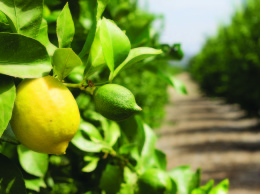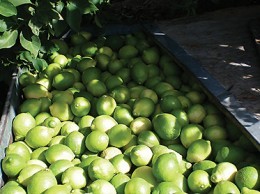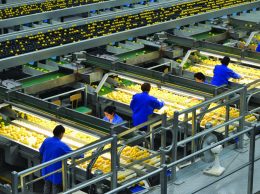The U.S. Department of Agriculture announced Dec. 20 that it would publish its final rule allowing lemon imports from areas of Argentina into the U.S.
Its pest risk assessment and three site visits, most recently in September, led the agency to conclude that a systems approach requiring registration, monitoring, treatment and traceability protocols for production and packinghouses, among other measures, would reduce the risk of introducing Argentine pests into the U.S.
The Animal and Plant Health Inspection Service sent the rule to the Federal Register, to take effect 30 days after publication. Argentina and the department will be required to finalize an operational work plan, verify safeguarding requirements have been implemented and collect data on fruit fly populations before fruit can be shipped.
A USDA analysis stated that California produced roughly $595 million worth of lemons on around 46,000 acres in the 2013-14 growing season. The Tri-Counties produced a total of 318,519 tons of lemons, worth $298 million, in 2014, according to crop report data.
Representatives of the citrus industry and California officials protested the rule during the extension of the public comment period in August.
“Our primary concern is the pest and disease issues, those threats,” Richard Pidduck, a citrus grower in Santa Paula and president of the U.S. Citrus Science Council, told the Business Times in August. “But the economic consequences could be very severe, not only in increased costs to fight pests and diseases but in loss of market share.”
A $12 million-$25 million gain for consumers from lower prices would offset lemon producer losses of between $10 million and $22 million, according to APHIS projections.
• Contact Marissa Nall at mnall@pacbiztimes.com.






 Print
Print Email
Email

















